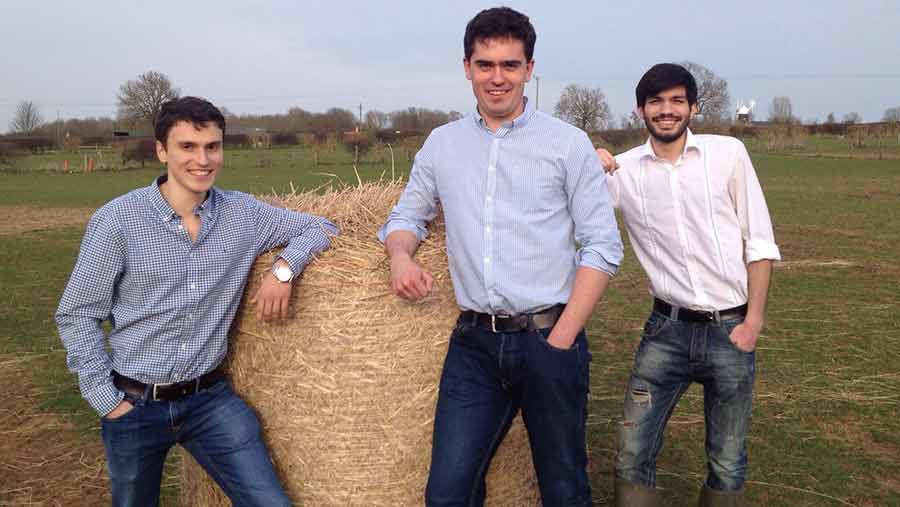Edible bale wrap developed to reduce livestock farm waste

Three PhD students have invented an edible bale wrap to reduce farm waste.
The patent-pending BioNet biopolymer was developed specifically for farms to wrap hay and silage.
It is the brainchild of three Imperial College London PhD students: Nick Aristidou, Will Joyce and Stelios Chatzimichail.
The trio came up with the idea after Mr Joyce, who grew up on a farm in Rutland, noticed his parent’s beef herd was creating a lot of wrapping waste.
One cow even died after eating the wrapping.
“We’ve eaten it and my colleague has fed it to his cattle,” says Mr Aristidou. “But we will need to do some official testing.”
With their invention, they have reached the finals of the Imperial College London Venture Catalyst Challenge (VCC), and could win £10,000 of funding.
Availability
Next, they’re looking into lacing the plastic with nutrients or probiotics. Researchers will then test the plastic for its nutritional quality and whether it is safe to eat.
They believe the material could be available to farmers in three to five years, with on-farm tests being carried out in the next 24 months.
“That [commercialisation] is the dream,” says Mr Aristidou. “The end goal is to get every livestock farmer using it.
“The product is there, it is just a case of scale and funding.
See also: Waste firm launches farm agricultural bale wrap amnesty
“The next stage is to really refine the product to market requirements by speaking to farmers and finding out what they want dosed into it. Then we’ll look at large-scale production.
“We can tailor what goes into the plastic for different animals – we could make one for equine animals, one for sheep, one for cattle,” he says.
If large-scale production is secured, they are confident they will be able to produce an affordable product for farmers.
“It’s just being able to secure the raw material at a low price,” says Mr Aristidou.
“Initially, we should be able to sell it a similar price to current plastic wrap, but at a low margin. But as more people want it we can produce it at a larger scale and it could easily become more affordable.”
